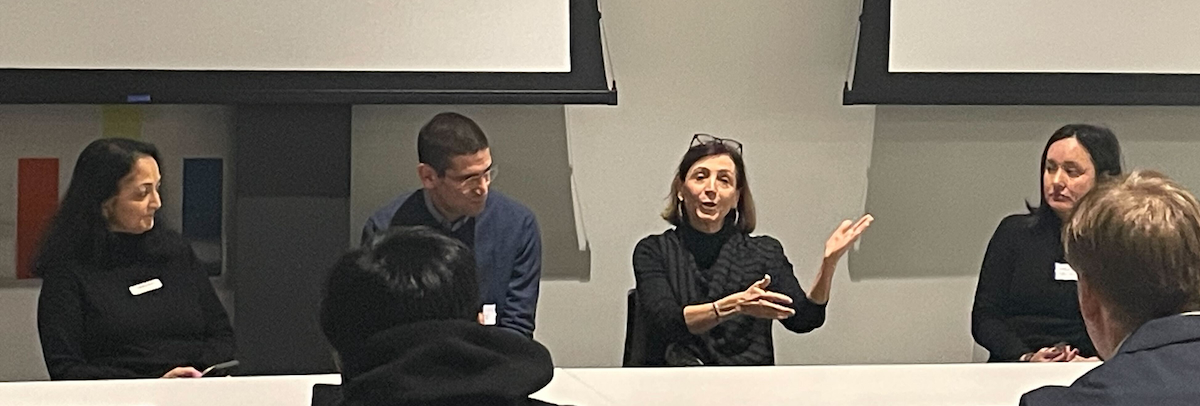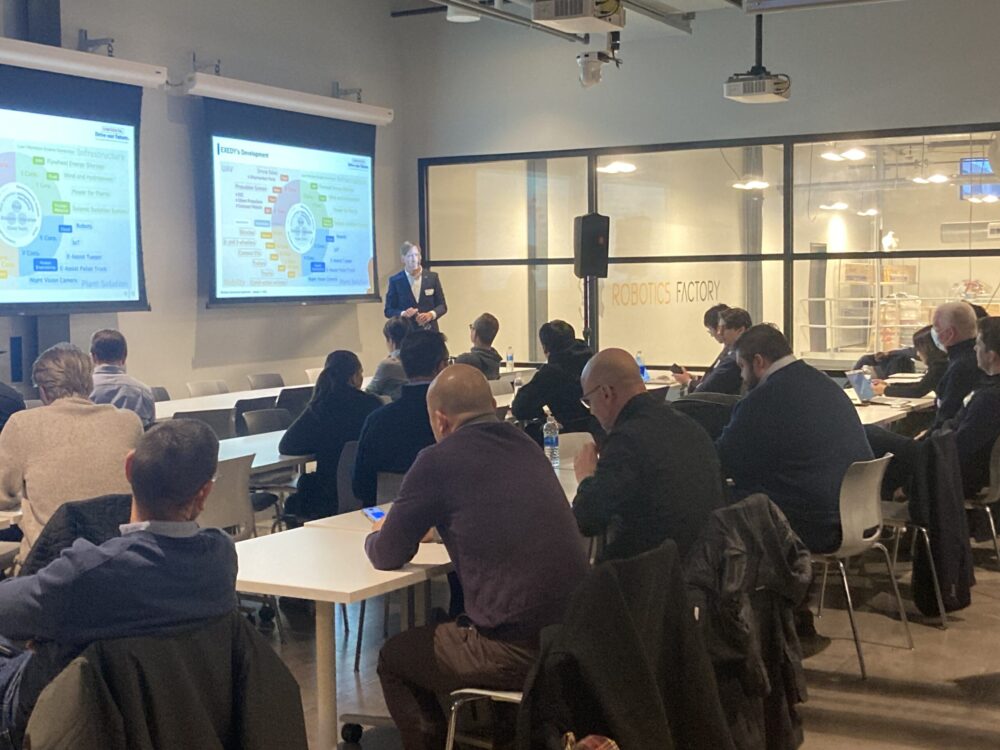In an increasingly globalized world, US founders might be thinking about how to reach customers beyond national borders. To do so, though is no easy feat — and one that requires cultural awareness and knowledge of foreign regulations.
Luckily, if you’ve ever considered making your business an international operation, there are pros with experience and advice to share.
Pittsburgh startup founders and investors came together to discuss barriers to starting businesses and growth at the Deep Tech Forum on Wednesday, hosted by Japanese VC firm Monozukuri Ventures at Innovation Works’ Robotics Factory space in the Tech Forge building. The Lawrenceville hub was Monozukuri’s second of three stops on a tour including Toronto and New York.
One idea in particular that got a lot of attention from panelists was how to sustain a business when you’ve decided to take it to a foreign market, whether that market is Japan, Israel or elsewhere.
The consensus from 412 Venture Fund Managing Partner Ilana Diamond, 412×972 Pittsburgh Israel Innovation Executive Director Gal Inbar, and Monozukuri Ventures Principal Sabrina Sasaki: Founders should not shy away from asking for help and make a conscious effort to understand new markets.
Be open minded
For Inbar, his advice was to remember that the business tactics that made one’s startup a success in the states might not translate as well overseas. Therefore, he said, it’s important to be flexible while developing a business strategy for a new county.
“When the international collaborations that are too rigid and too big to start doing it [or] the product is too well-defined, they don’t integrate other opportunities,” Inbar said. “What we are trying to offer to Pittsburgh companies is very early on, once they have a very good-for-market fit, [is to be] distributors or innovators for their technology.”
Find a business liaison
It’s one thing to speak a language, but it’s another thing entirely to understand another culture’s business practices. With that in mind, Diamond advised companies to find not only a translator, but a person who was familiar with the market, the culture, and best business practices to avoid alienating potential customers and partners. Just as customs can differ from state to state in the US, she cautioned, the professional culture can differ based on where in a country you are.
“A person speaking the language doesn’t mean they have the right industry connections,” Diamond said. “So you have to understand, just like in the US, east-west coast, South Japan [can] have totally different business rules or cultural [practices] that apply. A very promising young person in Japan can speak English and Japanese, but does not mean you’re getting the connection to where you want to go in terms of customer attraction.”

Learn about the regulations
Some countries have a higher or lower set of standards with regard to which products can be introduced to the market. This can be especially true when it comes to medical products, which is why it’s important to understand which requirements a company and products needs to meet before it can be sold, Sasaki said.
“Japan is very cautious with respect to adoption, with respect to engagement, traditionally safety always comes first,” she said.
Be humble
Looking back, Diamond said she wishes she’d known that in some countries, it’s unheard of for an employee to give their boss direct advice. There were times when she wasn’t aware that, although they couldn’t insist, people working under her were trying to relay important messages. It’s important to learn about workplace dynamics in places outside of the states in order to know what to expect from employees and how to best approach things.
“Be humble about learning from other people, and what life in office looks like,” Diamond said. “Be patient, as he said, and learn something about the culture and ask questions. I should have been asking, ‘What can I do to get better terms?’ but I was just using the American spectator perspective.”
If you’ve ever taken your company or products into a new country, what do you wish you’d known? What would you advise for a startup or company considering a foreign market? Let us know at pittsburgh@technical.ly.







